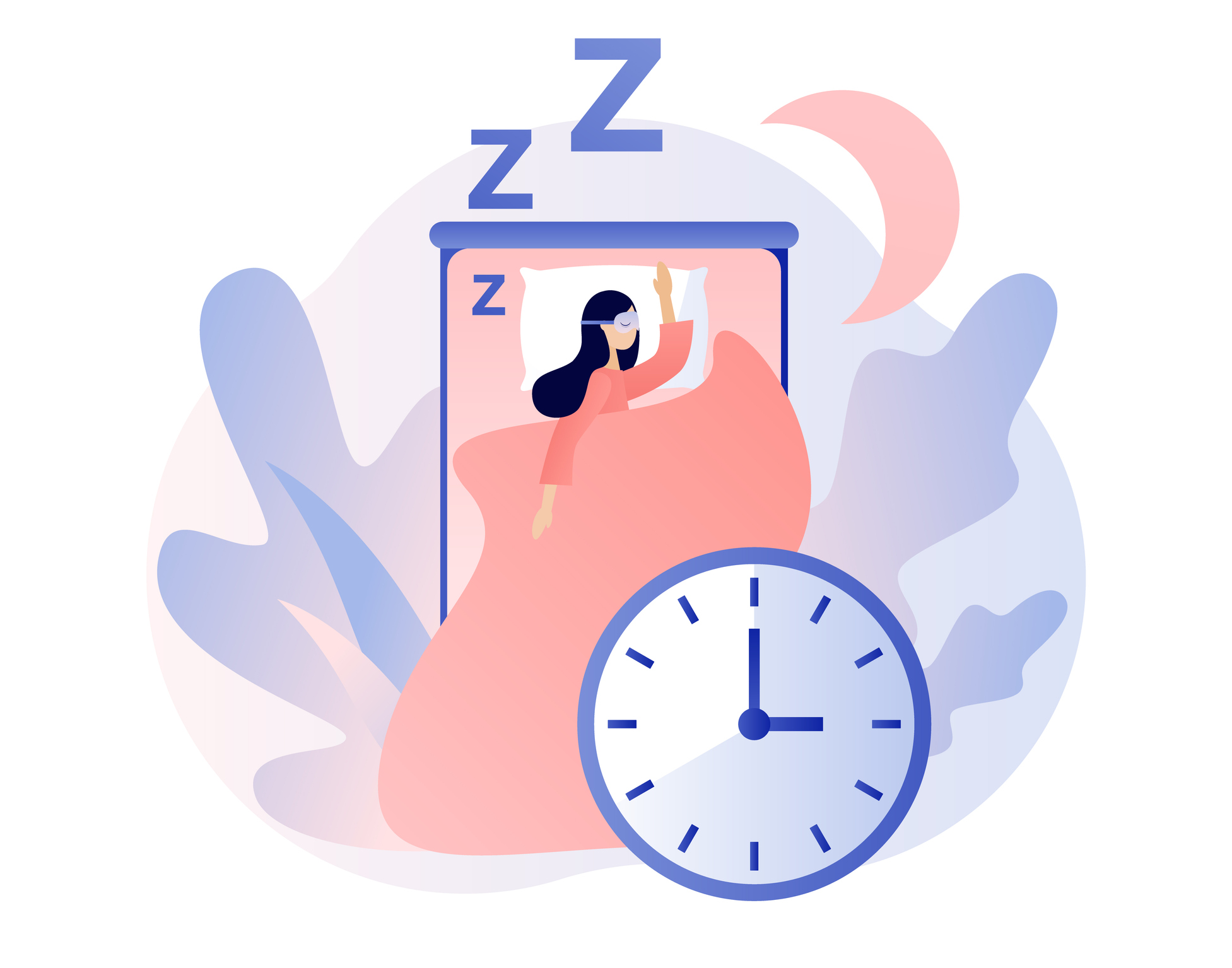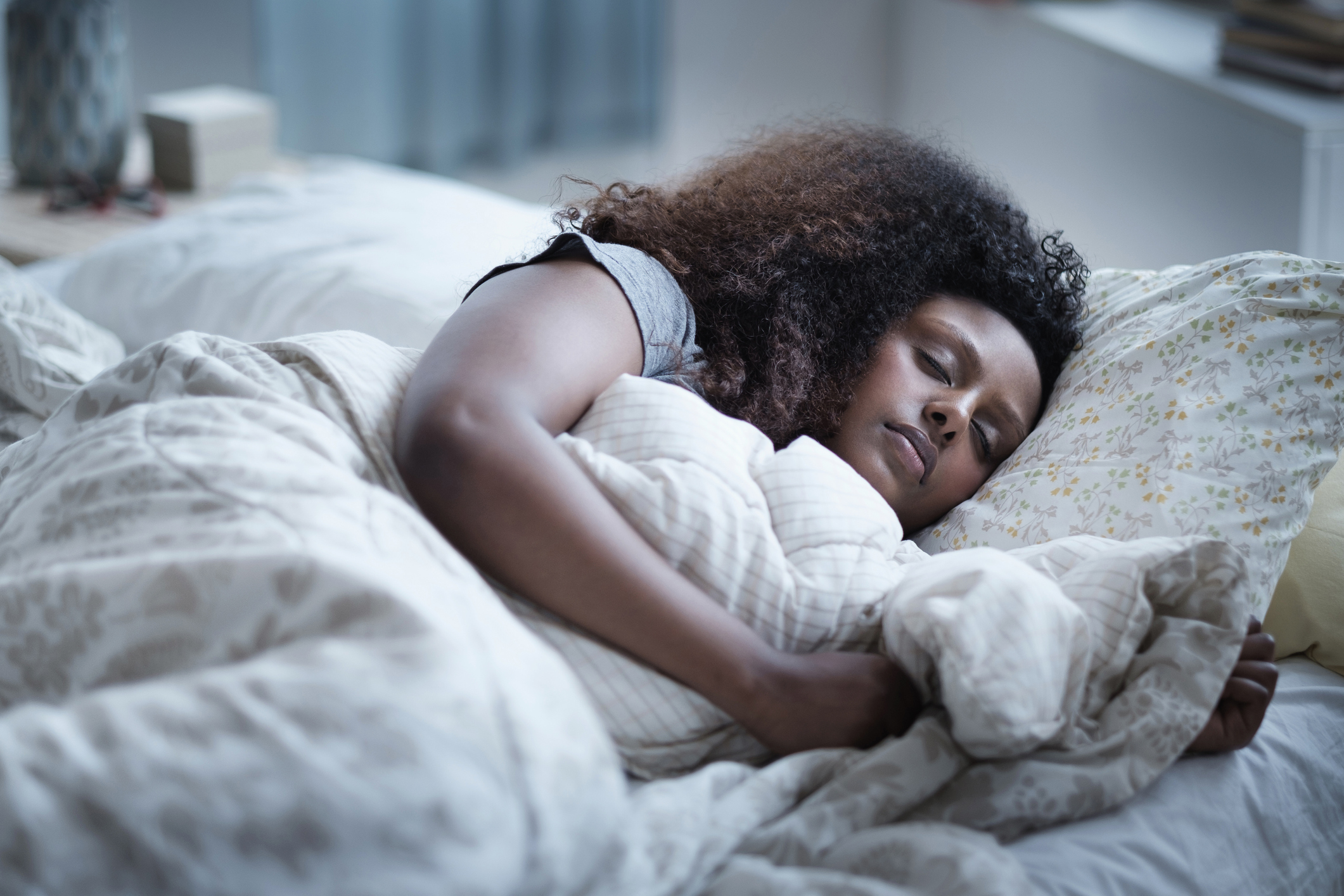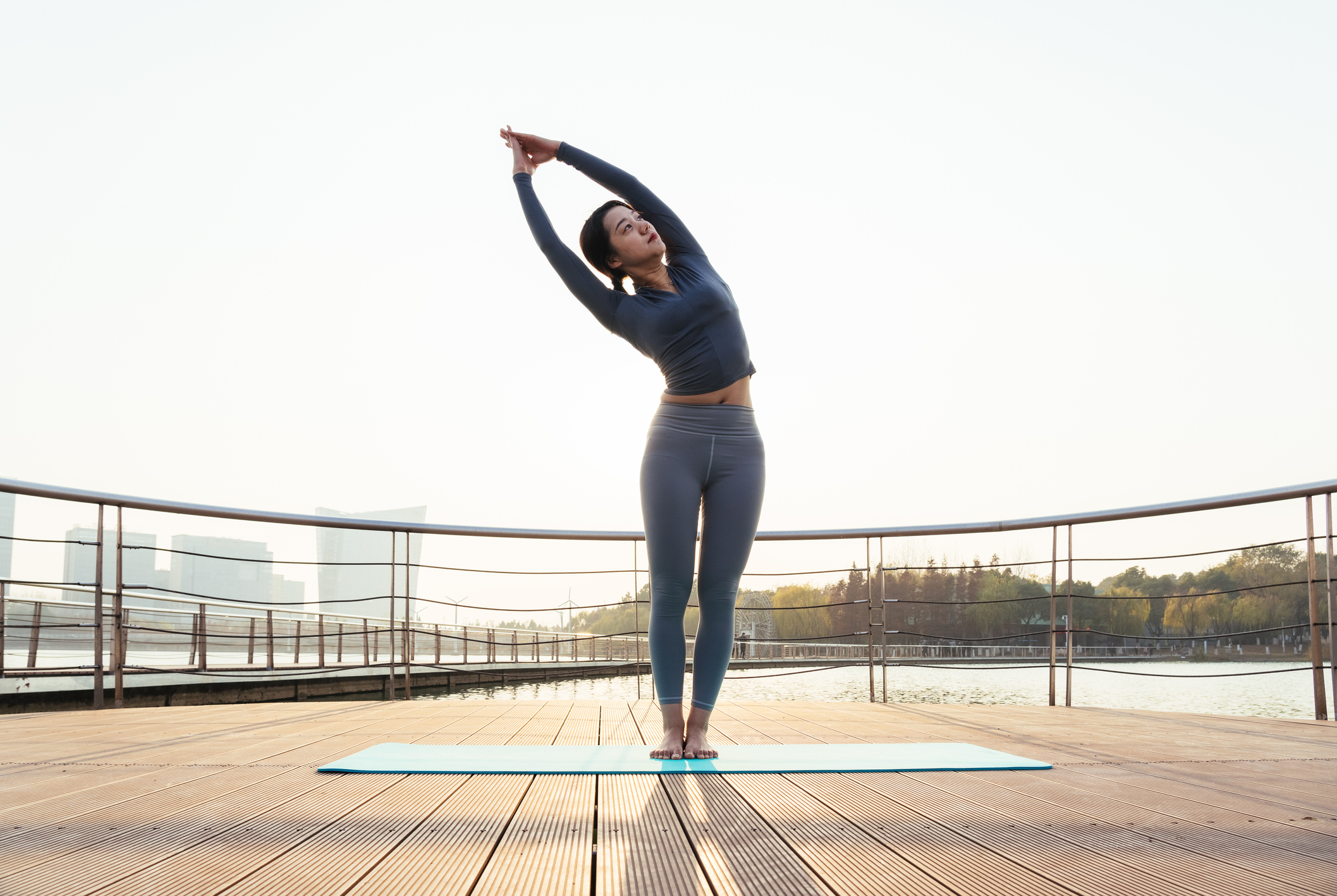How to fix your internal body clock to become your healthiest self
Listening to your body clock could make a huge difference

Do you struggle with your weight, have problems sleeping, lack energy and feel low or anxious a lot of the time? If so, you may be out of sync with your body clock.
- Help your body and your brain slow down with the best meditation apps to reconnect with your basic bodily rhythms
"It doesn’t matter how much you exercise or how well you eat; if you want to stay healthy, the timing of when you do things is crucial too," says Dr Satchin Panda, Professor at Salk Institute, San Diego, and author of The Circadian Code.
"Almost every bodily function is governed by 24-hour biological cycles called circadian rhythms. These rise and fall throughout the day and help us to anticipate and prepare for daily activities – when to eat, when to sleep, when to wake." This is our natural body clock.
"Circadian rhythms are controlled by circadian clocks, which are present in almost every organ and cell," explains Dr Panda. These set the timing for different bodily processes, including the sleep-wake cycle, digestion, absorption, detoxification, metabolism, body temperature, hormone production, immune, muscle and brain function.
So, every hormone, brain chemical and digestive enzyme is preprogrammed to peak at optimal times of the day. For organs to function well, they need time to rest and repair. "The circadian clock in the gut, for example, tells your body when to produce hunger and satiety hormones, digestive juices, absorb nutrition, and remove waste," he continues.
"Similarly, there are clocks in the pancreas, muscle, liver and fatty tissue. All of these are controlled by a master clock in the brain called the suprachiasmatic nucleus (SCN). The SCN receives information (through the eyes) about light and darkness from the outside world and shares it with the rest of body."
When you’re in tune with your natural biological rhythms, you eat, sleep, exercise and work at the optimum times and everything runs smoothly. But how many of us actually do this?
"The reality is that we’re all super busy these days," says Dr Suhas Kshirsagar, author of Change Your Schedule, Change Your Life. "Internet, emails, text messages and social media have increased the pace of life tremendously. As a result, our busy schedules are making us disconnected from our basic bodily rhythms. Bad habits like skipping meals and working late into the night disrupt natural biological cycles."
Now, think for a moment how good you’d feel if you lived entirely according to your body rhythms. "If you want to improve your health and reduce your risk of developing health problems, you need to realign yourself with your natural circadian rhythms," says Dr Panda.
"By making changes to your daily routine, you should notice physical and emotional improvements to your health within a few weeks. You’ll have more energy, feel calmer and more alert, sleep better, think more clearly, work more effectively, your digestion will improve and it will be easier to maintain your optimum weight."
So how can we best work with our internal body clock? Try following these guidelines and see how your body reacts...
When is the best time to eat?
"Your digestive system works best in the early part of the day," says Dr Panda. ‘So, you should eat most of your food for the day at breakfast (7-9am) and lunchtime (12-1pm)."
According to Dr Panda, your insulin response is also better in the first half of the day. "Eating early helps you to burn off calories more efficiently. Try to eat all your food within an eight to 11-hour window. This will also help you to maintain a healthy weight more easily."
If you want to lose weight, try to eat within an eight to nine-hour window and avoid eating anything two to three hours before you go to bed.
When is the best time to be productive?
Biological rhythms influence brain function, creating peak times for different mental functions.
- 9-11am: Best for creative thinking, learning, analysis and concentration. Mental alertness and memory is at a peak. "So it’s a good time for any jobs that require focus and concentration," explains Dr Panda.
- 11am-2pm: Your reactions and ability to do several tasks are strong. Use this time for presentations, meetings and taking action.
- 2-3pm: Have a break. Meditate, read and relax.
- 3-6pm: This is a good time for creative thinking, brainstorming and attending meetings.
- 6-8pm: Ideal for socialising and any personal tasks.
- 8-10pm: Use this window for relaxing before you go to sleep.
When is the best time to sleep?

"Aim to get around seven to eight consecutive hours of sleep each night," says Dr Panda. "Within that time, there is a critical four-hour window. You may notice that between the hours of 10pm and 2am, you get some of your best sleep."
He recommends going to bed and getting up at the same time every day. This sets a regular dark/light pattern that helps to rewire your body clock. "Eating your last meal at least two to four hours before going to bed allows the body to cool down," adds Dr Panda.
"In order to fall asleep, core body temperature must lower by one degree Fahrenheit. When we eat, our core temperature goes up."
As well as this, aim to ditch all electronic devices one to two hours before hitting the hay. Blue light is a big cause of sleep disruption so that means no Netflix and chill or a late night scroll before bed.
When is the best time to take a power nap?
"After lunch, your body uses more energy for digestion, which can trigger a natural energy dip," says Dr Panda. "So it’s the perfect time to take a quick siesta."
What if there’s no way you can sneak off for a quick nap? Try this energising breathing exercise instead. Inhale slowly and deeply through the nose. Count to four. Exhale slowly through the mouth. This encourages you to take in more oxygen on the next breath. Repeat four to five times.
When is the best time to exercise?

- 6am - 9am: Ideal for getting outside and moving. "A brisk walk, or any outdoor aerobic activity such as running, jogging or swimming, in the presence of daylight is an excellent way to synchronise your brain clock," says Dr Panda. "This will also enhance brain function and improve your mood for the day. Exposure to daylight increases alertness and reduces depression. On colder days, you also activate brown fat and increase fat-burning potential."
- 12pm - 2pm: This is the best time for low-impact, moderate exercise like walking and yoga. Try going for a short, brisk walk at lunchtime – it will energise you and help you to feel more alert in the afternoon.
- 3pm - 6pm: Great for most sports and aerobic exercise. "This is a great time to exercise, as our body temperature goes up and muscle strength and flexibility start to peak," says Dr Panda. "The muscles absorb and use nutrients in the late afternoon, when repair occurs. Motor coordination is best now and blood flow and blood pressure are higher in the afternoon, which improves the oxygenation of muscles."
- 6pm - 8pm: Ideal for swimming, gymnastics, yoga, Pilates and stretching. Our body temperature is at its highest and muscles are more flexible. So this is a good time for stretching. Physical activity also aids digestion and promotes better sleep.
When is the best time for a facial?
Planning a DIY facial or skin treatment? "Some cosmetic or medicated treatments applied to the skin may work better at certain times of the day," says chronobiologist Michael Smolensky.
"Studies show that many are more effective between 4pm and 8pm, when body temperature is higher and skin more porous. Studies have also found that anti-inflammatory and pain-relieving creams are twice as effective during these times."
Will you be following these rules for adhering to your body clock?
Eva Gizowska is a journalist specialising in health, wellbeing and lifestyle features. She has written for a variety of publications including:
The Independent, The London Paper, Guardian, Sunday Times - Style, Saturday Times, Times - T2, Daily Mail, The Mail on Saturday - Weekend, The Daily Express, Daily Express, The Mirror, Evening Standard, Grazia, SHE, Zest, Health and Fitness, BMI Voyager, Trip Magazine, Boots Magazine, BUPA Magazine, Asda Magazine, Healthy Living, Cosmopolitan, REAL and Spirit and Destiny.